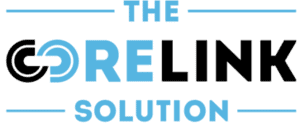Success Thought of the Day – 7/16/18: Habits are Powerful Tools

Habits are powerful tools. John Maxwell shares a great story along this line that creates a visual that reinforces it.
The Story
One day, a man goes out his back door, grabs an ax and takes five chops at the same spot on a tree. He puts the ax back and goes back in the house. The second day, the man goes out, grabs the ax and takes five chops at the same spot on the tree. He puts the ax back and goes back in the house. On day three the same – – on day four the same – – and so on.
After some time, the tree finally falls. However, if the man would have stopped going outside each day; or would have used another tool; or would have only taken three chops; or would have taken five chops, but at different spots on the tree; he likely would not have cut the tree down. It is the consistency that allowed him to achieve the goal.
The Science
In the Power of Habit: Why We Do What We Do In Life and Business by Charles Duhig, he points out three points of a habit.
Cue: something that prompts us.
Routine: something that we do upon seeing the cue.
Reward: the thing we are looking forward to once we execute the routine.
The science behind habits is worth understanding, whether you are trying to establish a new one or break a bad one – – which some say is really replacing a component of a bad habit with a new component.
Applying the science
Let’s use the John Maxwell story in the construct of what we learned from Charles Duhig.
Cue: Something caused this gentleman to start his routine each day, perhaps an alarm clock or an event (e.g. in sequence after another task).
Routine: The routine was to go out the back door, pick up the ax next to the shed and take five chops at the designated spot on the tree and put the ax back.
Reward: His reward would be that tree finally coming down, but that would not happen at the end of the routine each day! In other words, he never knew when he would receive his reward. This introduces us to the idea of delayed gratification rewards when we consider replacing components,
This is obviously not a new concept as we do it all the time. Point in case when we consider the very reason there is a multi-billion-dollar weight loss industry. As an example, we want to stop the habit of eating sugary foods which offer the immediate reward of great taste and satisfaction. As a recommendation to achieving weight loss, when the cue occurs, the routine is changed to grab some rice cakes to achieve the same reward. (Note: Some might suggest the person needs to ignore the cue and build up to full resistance and control. I am not a weight loss professional, nor is that the point of this case).
Take-Away Items
Your habits can work powerfully in your favor. Instead of focusing on “bad habits to break” or “Good habits to start” perhaps begin with “I need to understand my current habits in order to modify them.”
Analyze your habits over the next week. Look out for what rewards you are seeking. Determine what cues trigger you to begin a routine to achieve those rewards. This will help you understand things you may be doing consciously and subconsciously and take advantage of swapping out components to align things to achieve your goals.
Have a great day!
Get the Success Thought of the Day delivered to your email box each morning. Join here!
Visit our resources page for more tools for your growth.






